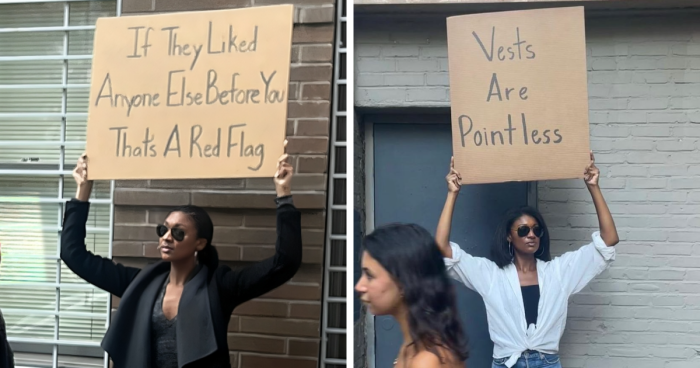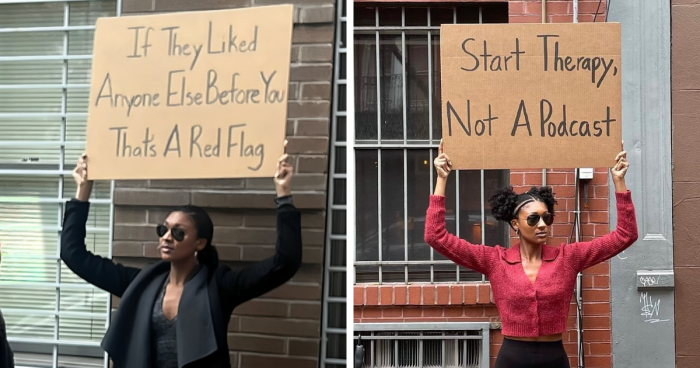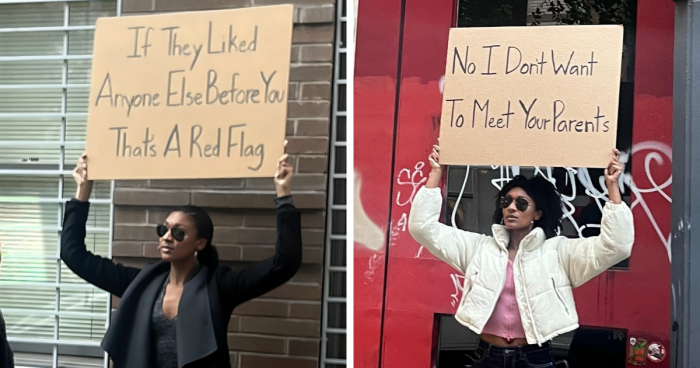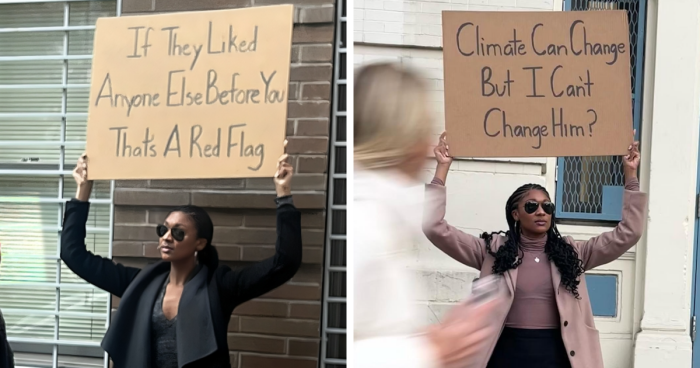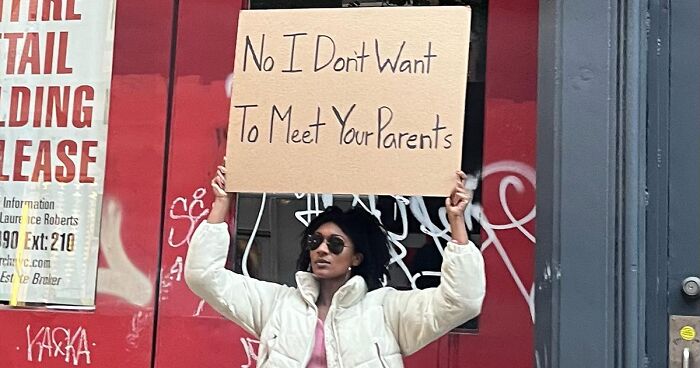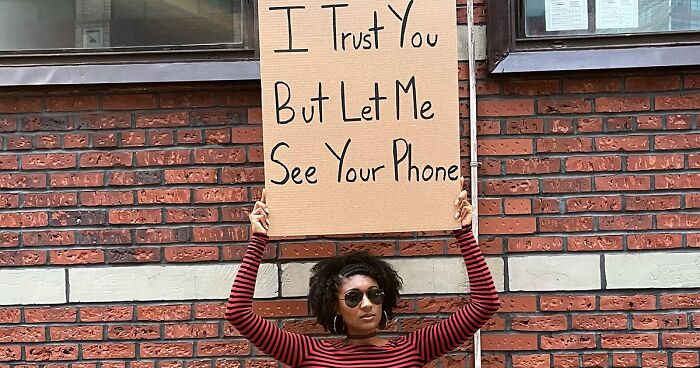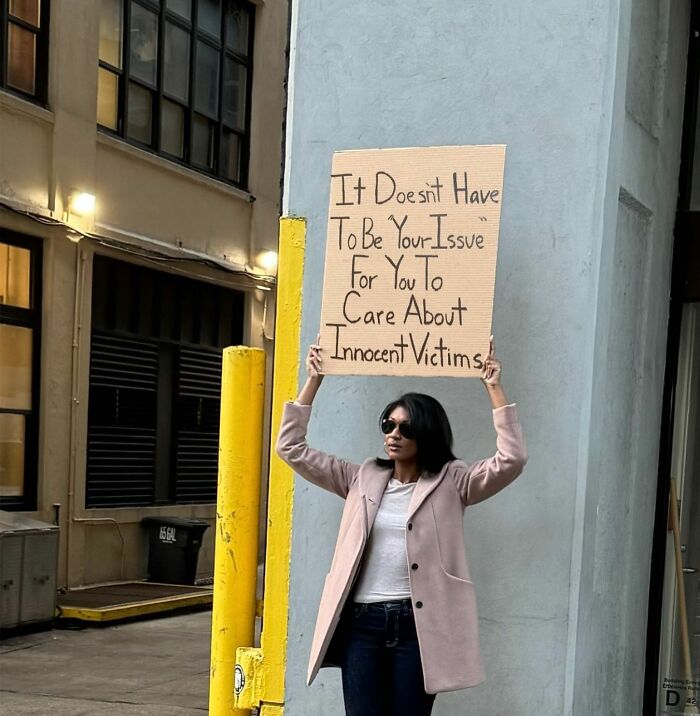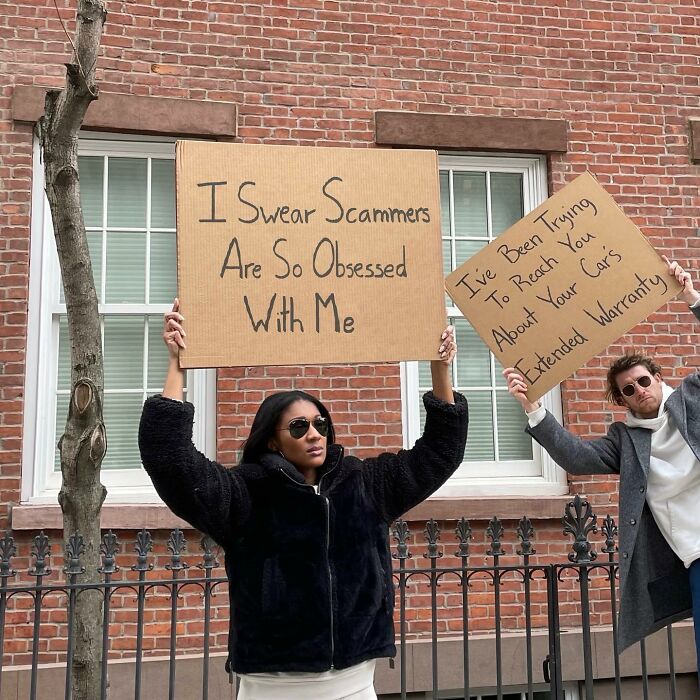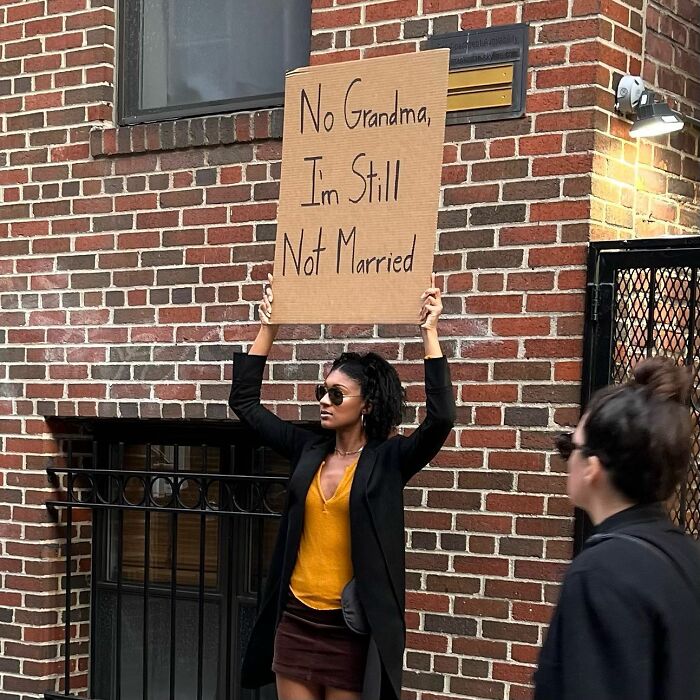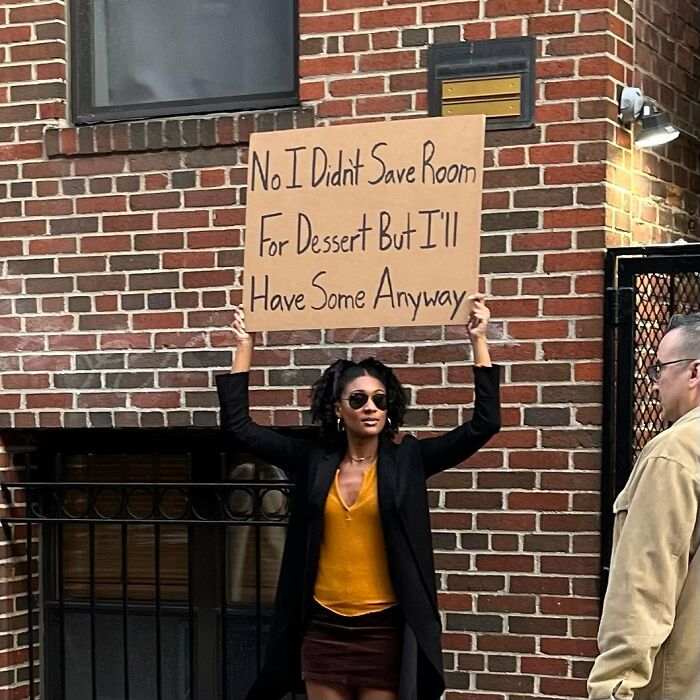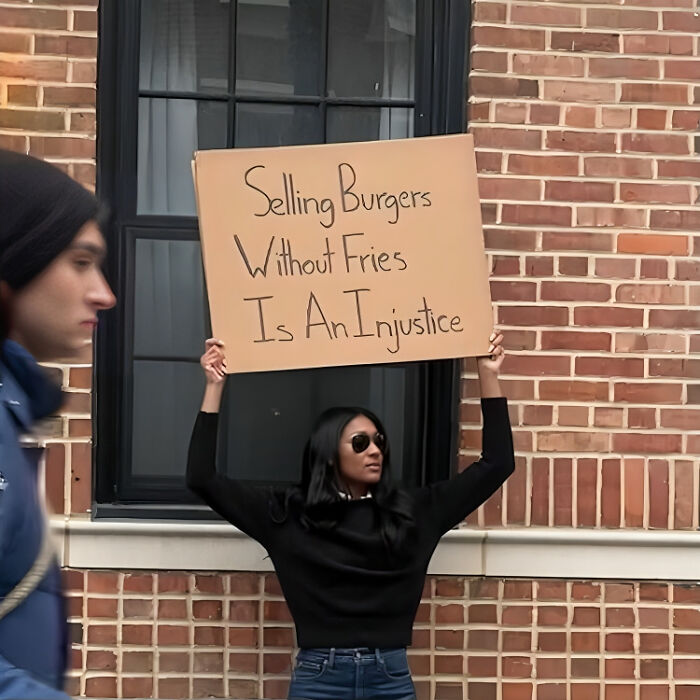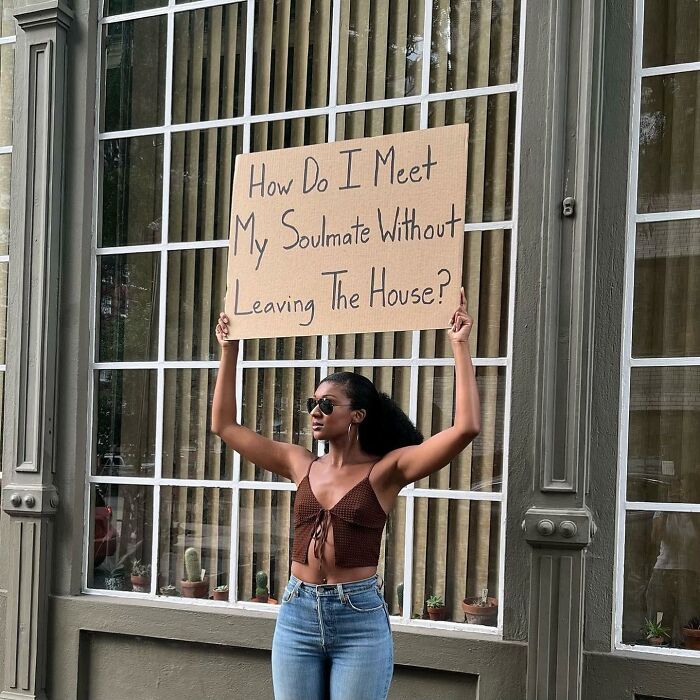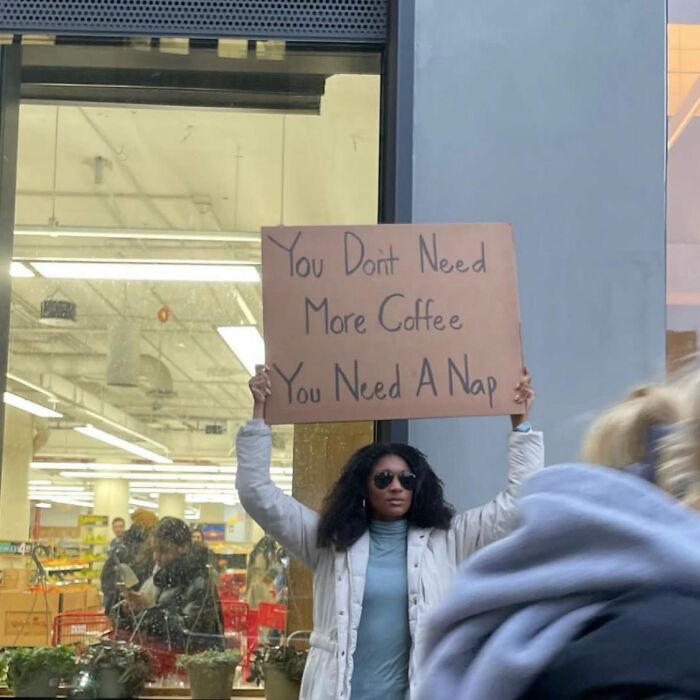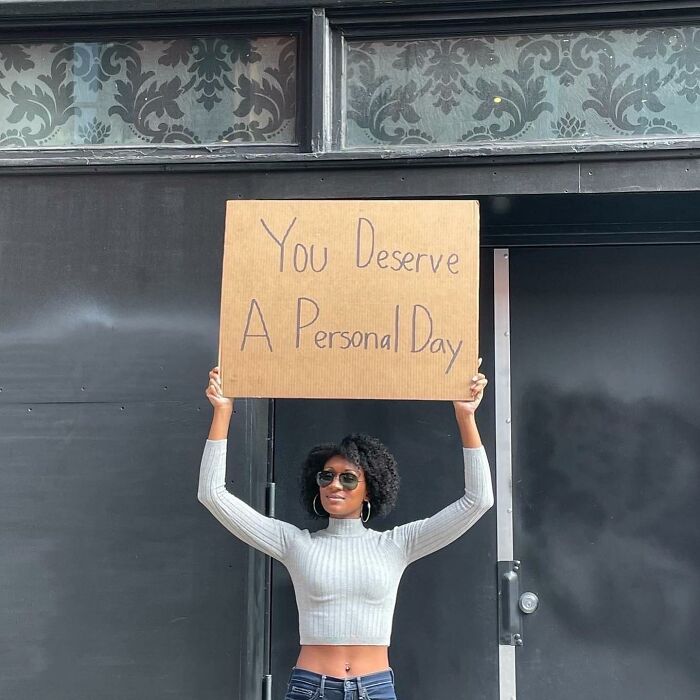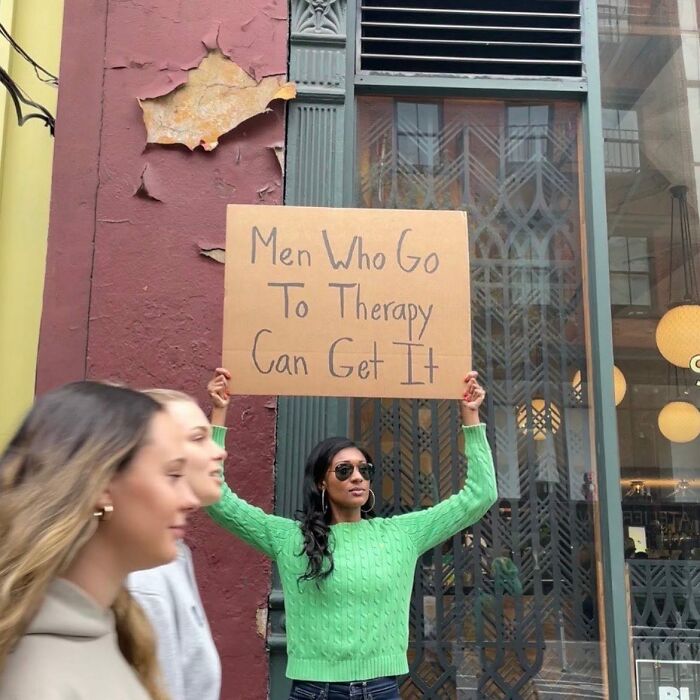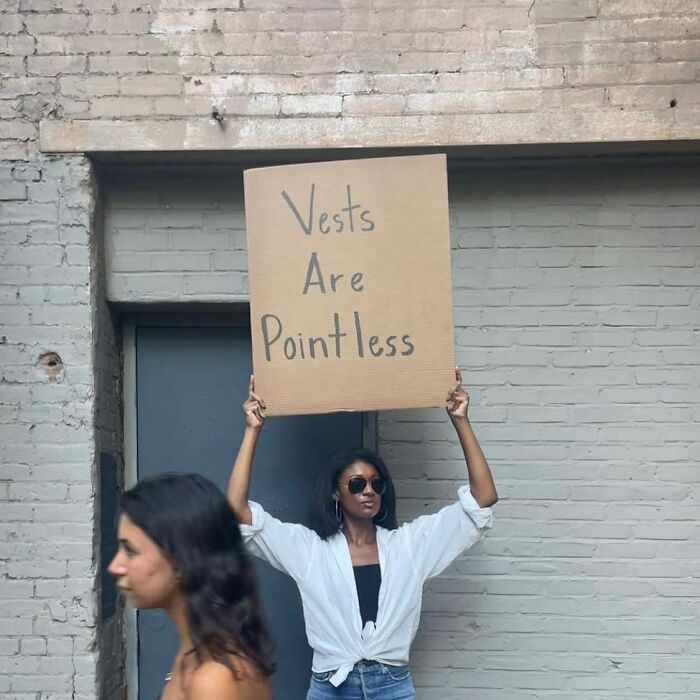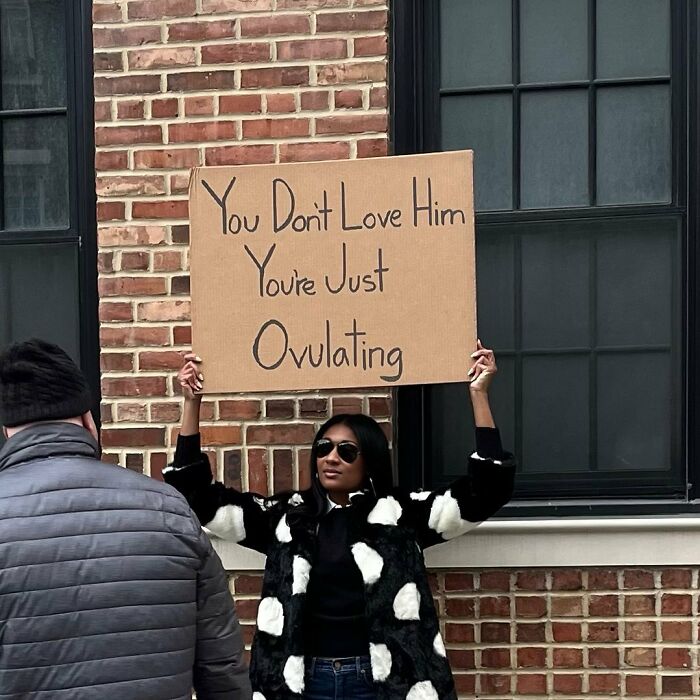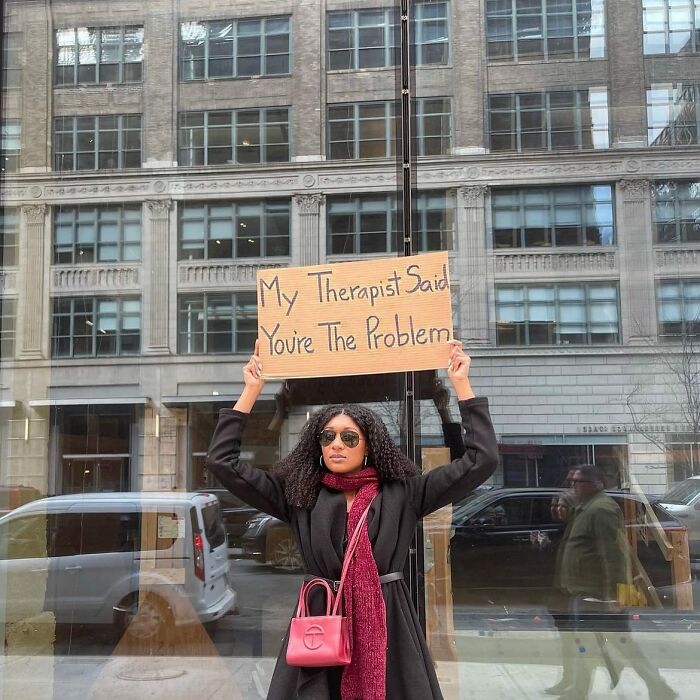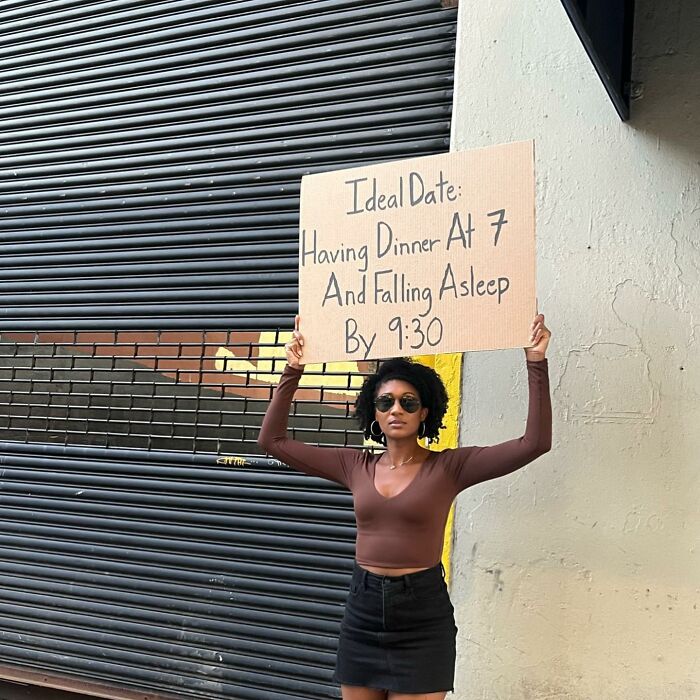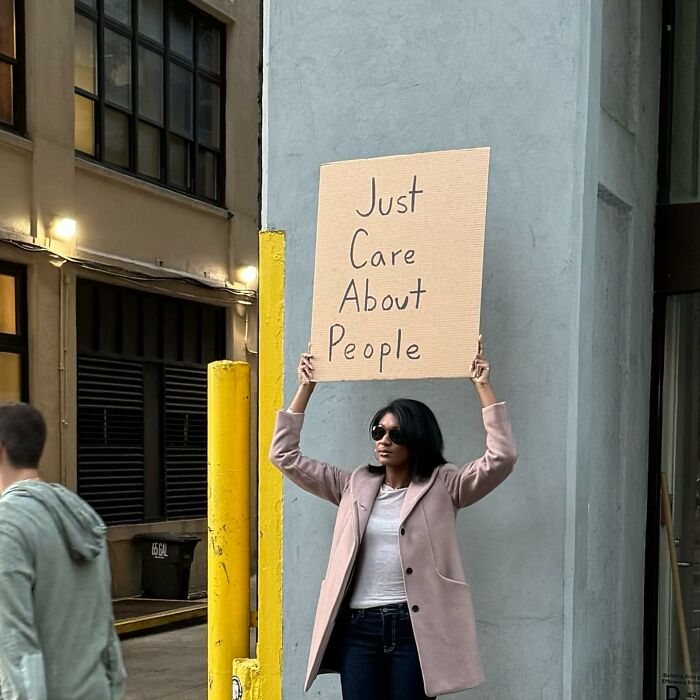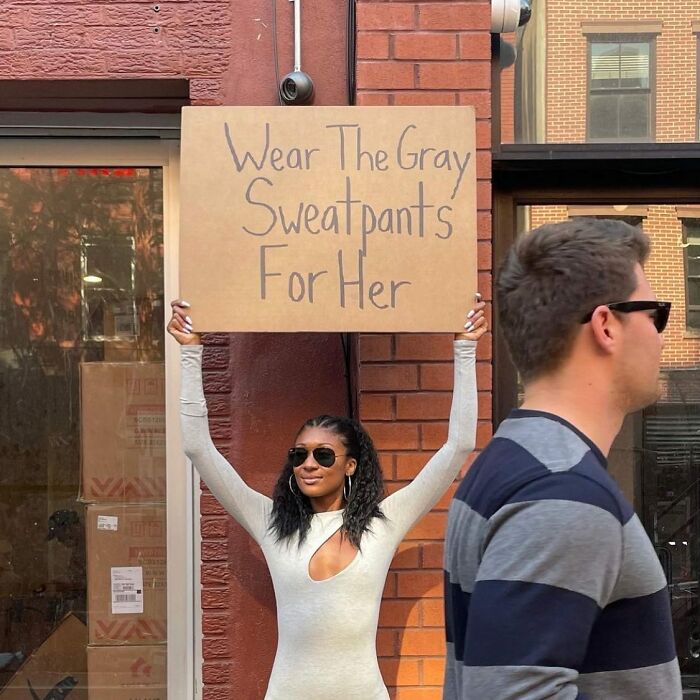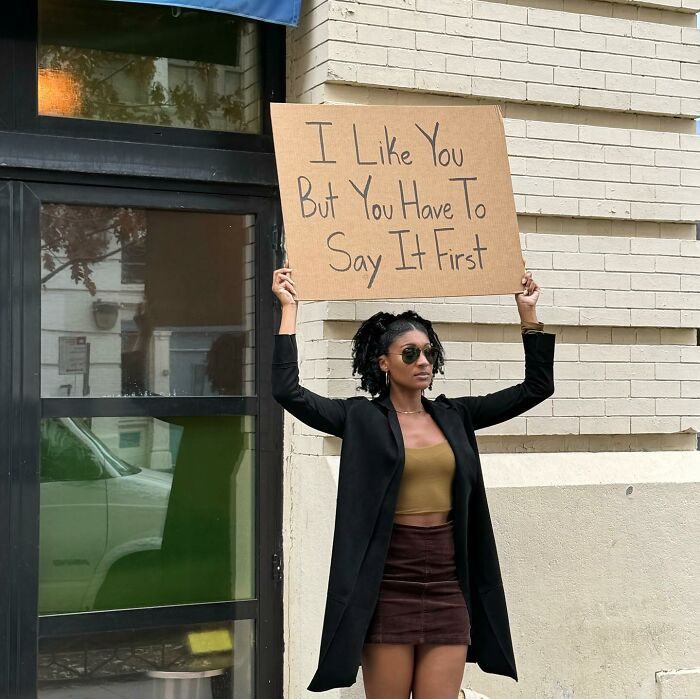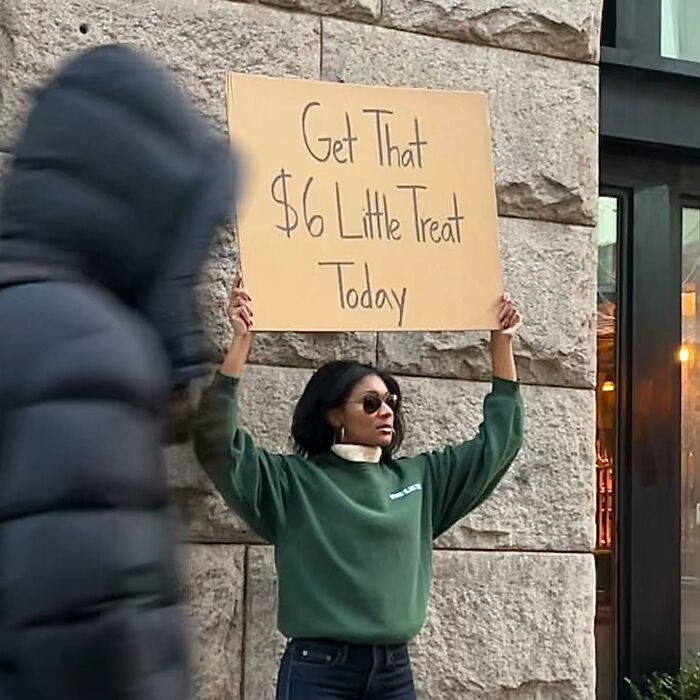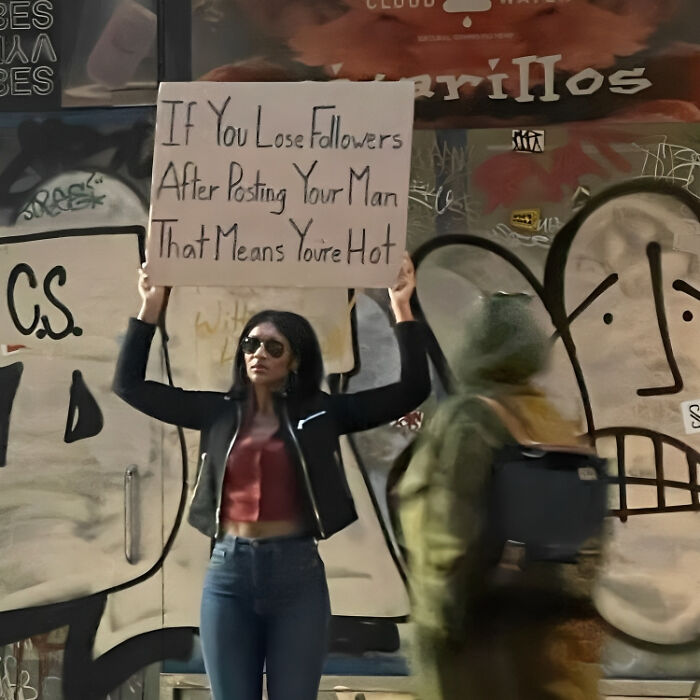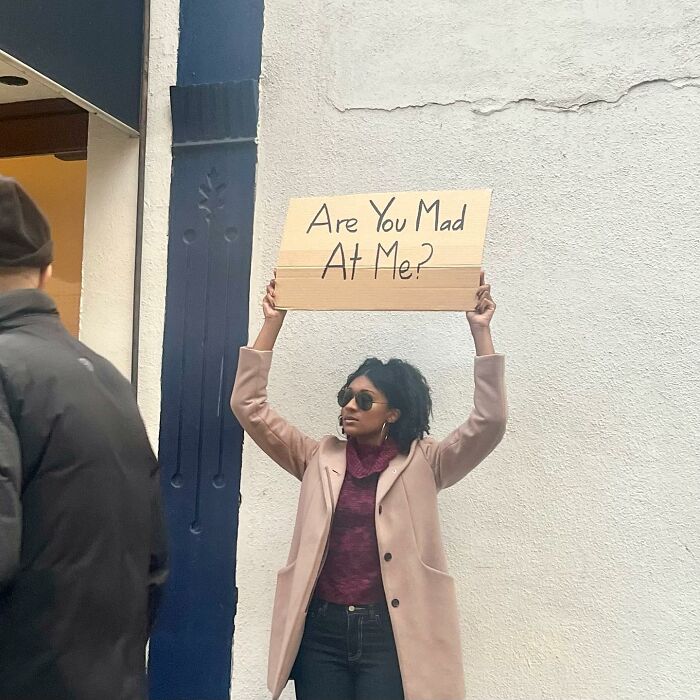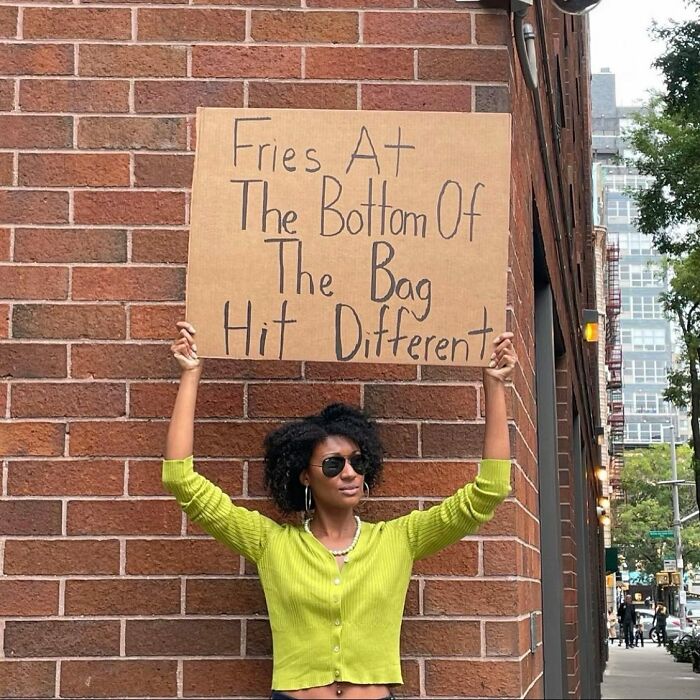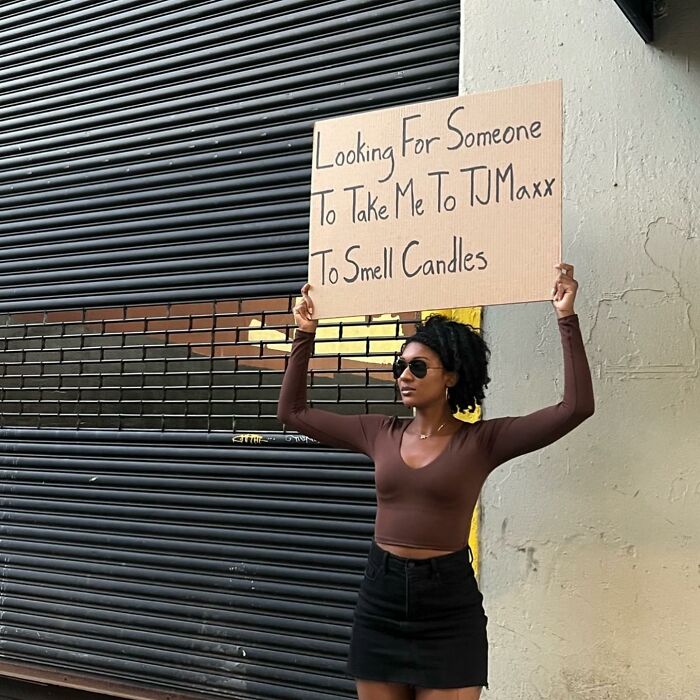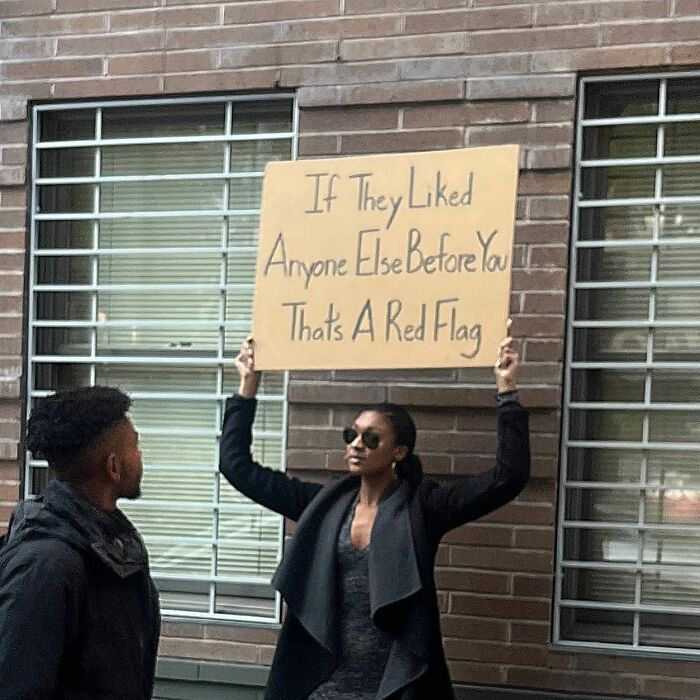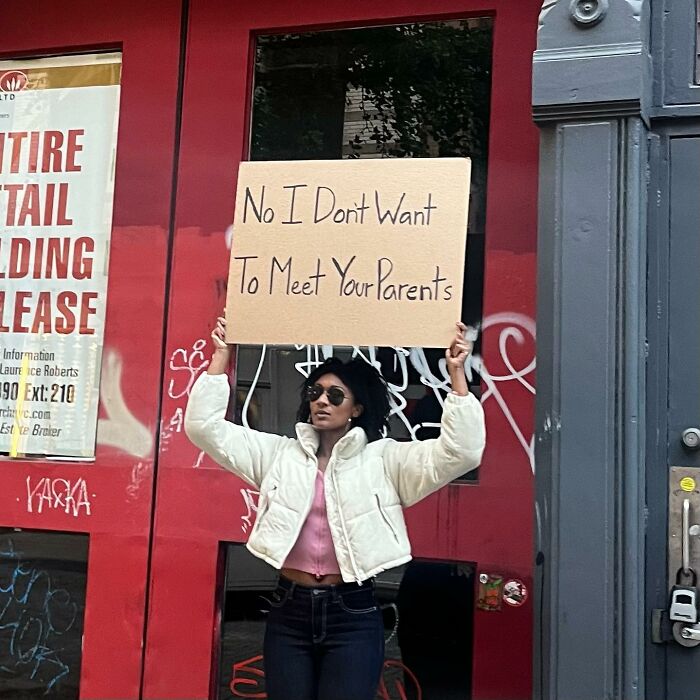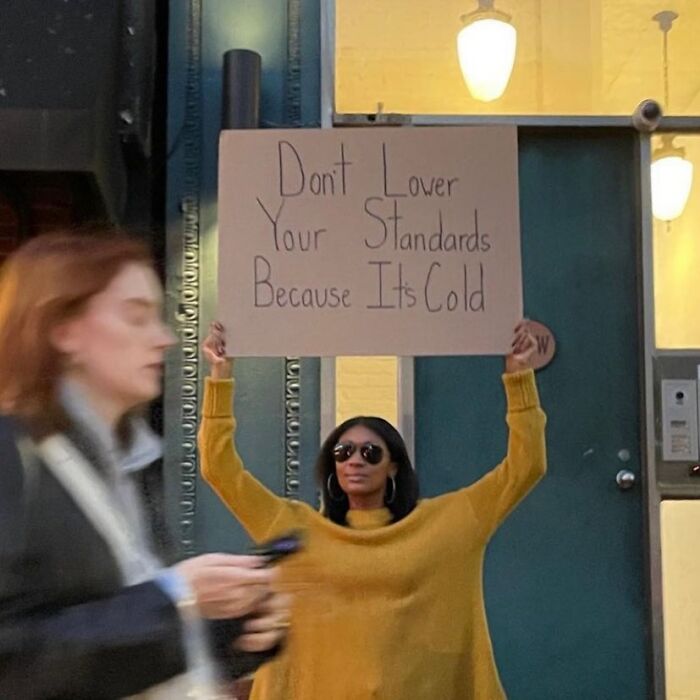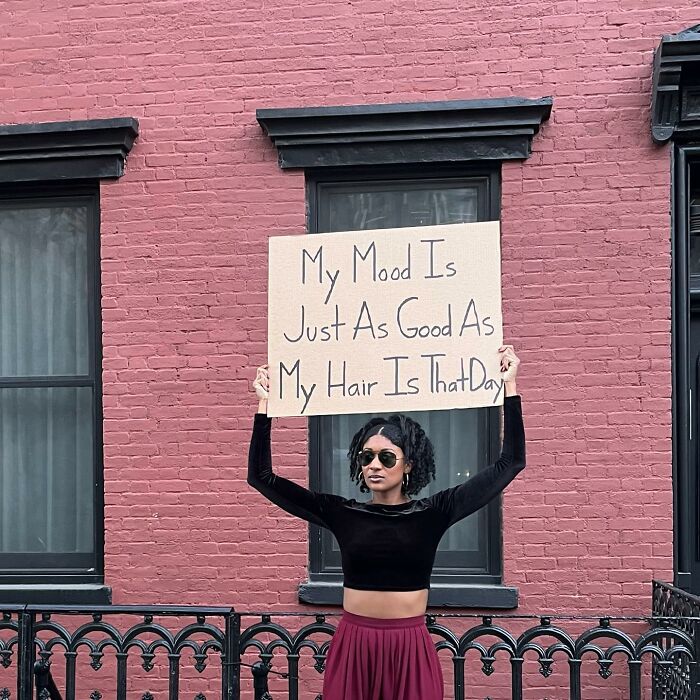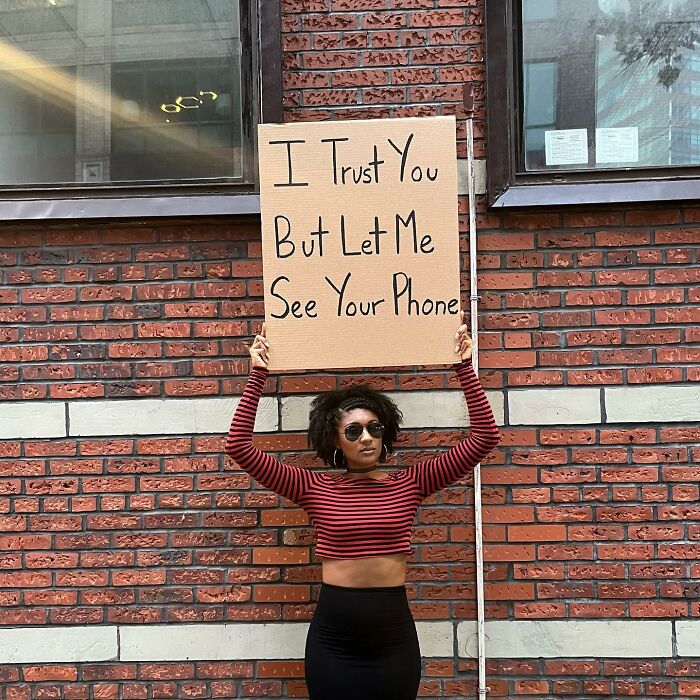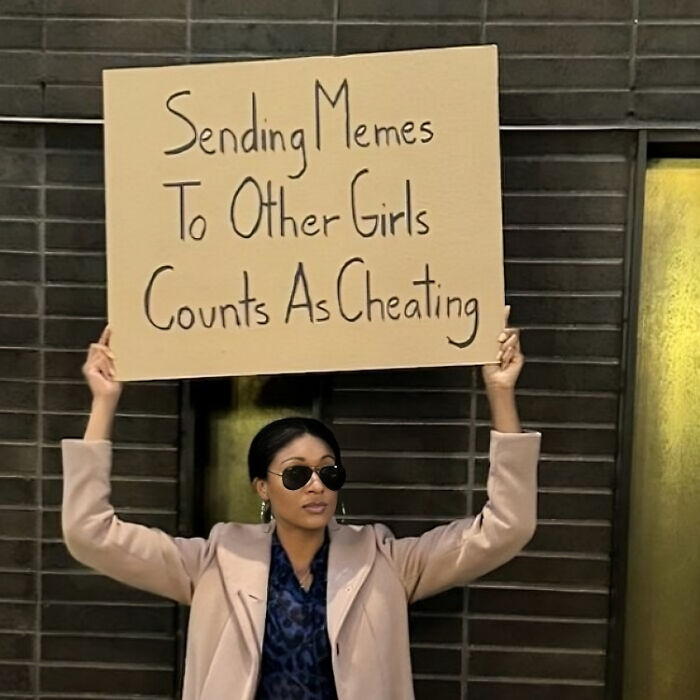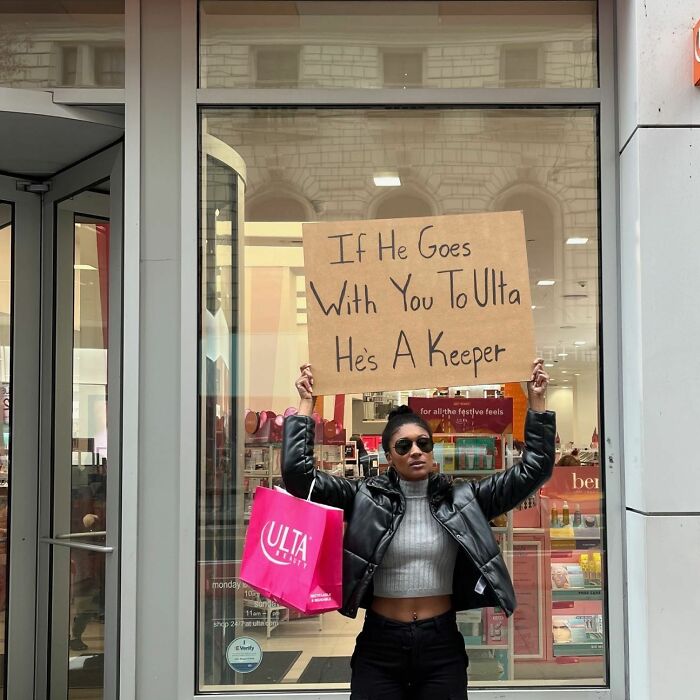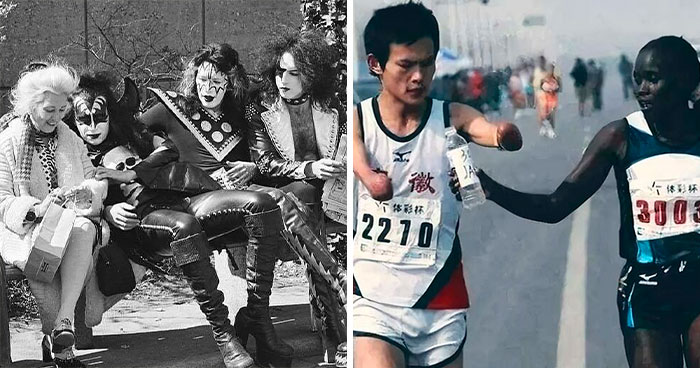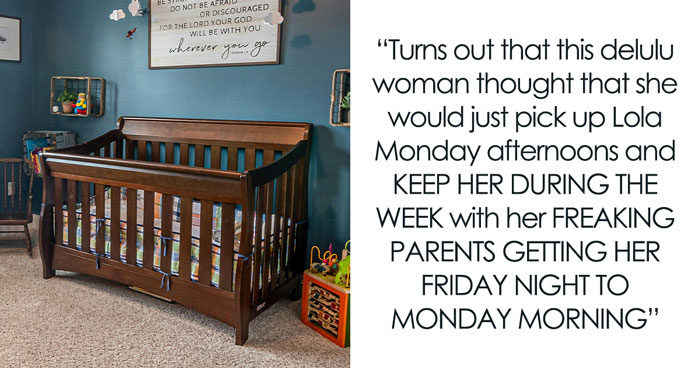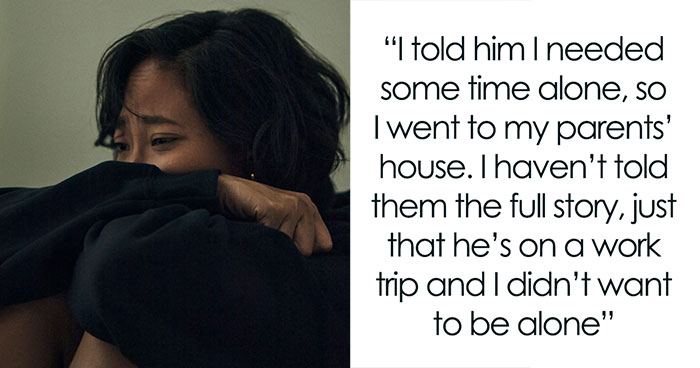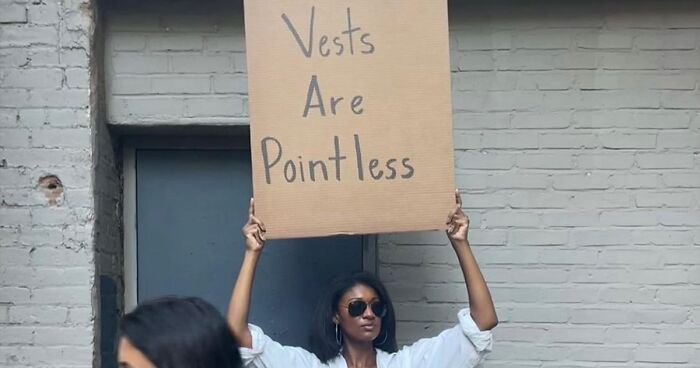
30 Of The Funniest And Most Accurate Signs About Everyday Annoyances By This Dudette (New Pics)
Remember that dude with a sign who protested against practically everything that was annoying yet otherwise very ordinary? Well, there’s a sequel… a spin-off?… there’s more fun to be had there as the dudette with a sign stepped into the streets to protest the same ordinary things that we can all agree are quite annoying.
Scroll down to see the best of the best from the protesting gal and be sure to upvote and comment on the ones you’ve enjoyed the most.
This post may include affiliate links.
If you’re not aware, there’s this internet meme with a dude who keeps holding up signs protesting the most ordinary yet still annoying things. He just stands there with a piece of cardboard and something short yet witty, clever and relatable written on it. Well, he’s Seth.
Bored Panda has extensively covered him in the past—specimen one, specimen two, specimen three… you get the point.
Well, there’s now a dudette with a sign—Nisarah—who has joined the ranks of dudes in protest. Like Seth, she too protests all things rather ordinary, yet a bit relatable with how annoying it can be. And these cover everything from social issues to employee irks to just flat out why the heck do people be like that? And we’re happy someone’s taking a stand.
I've told this to my son enough times that it's pretty well understood, but I think it was worthwhile explaining a few times: "I'm not it's up to you, but I'd still like to consider your input."
Going off on a bit of a tangent, but protesting—despite its seemingly aggressive nature that tackles uncomfortable topics—is actually a good thing in terms of democracy.
First of all, it is protests that help folks realize that they are not alone. The majority rule might dictate a particular agenda and opinion, but it might not ideally reflect it. So, a protest is definitely a way of showing that there are many like-minded individuals out there who support something contrary to that which has been set in stone.
Protests are also good at shedding light on a problem and starting a debate. As representatives of the people, it’s ironic to think that public officials can choose to ignore issues. But bring enough protesters and then they will have to cough up a reason or two for the situation, thus furthering a conversation between the public and those in power.
I came home from uni once knowing that my parents had moved my stuff into the box room, I didn't live there and didn't need the room so I was fine with it. They'd painted it pink, all the stuff I actually needed or wanted when I was home was in the loft and replaced with a load of stuff I'm sure was never mine to begin with and all of my posters had been taken off the walls of my original room and my mum openly admitted to binning most of them. I shrugged it off, grabbed what I needed out of the loft and went about my Easter Holiday's. Came home for the weekend one time to find that they'd accidentally smashed the plasma ball I had on my windowsil. I didn't freak out, didn't demand for it to be replaced just looked at the ring of dust and went "huh, wonder where that went?". When I did ask I was told I'd never had one, even though the shape of the base was still in the dust on the windowsil and the adaptor for it was still plugged in. I never came home much anyway so I dealt.
Likewise, protests in electoral democracies are a way of empowering minority groups to be heard. Sure, it’s majority rule, but it’s not like the majority and minority can’t coexist, let alone have fundamental rights. Protests give a voice to minorities so that the majority rule wouldn’t overshadow them.
What keeps folks going is that protests sometimes actually lead to huge winnings. If a protest is powerful enough, the public might win.
There’s an example of this from 1990, when the UK introduced a tax that folks weren’t happy with. There were so many people out there that the government just couldn’t prosecute everyone. In the threat of chaos, the government didn’t go with the tax and so the protests subsided.
And sometimes victory comes unexpectedly.
There was another unpredictable event that actually worked out for the best. Back in the 1980s, there were protests over nuclear cruise missiles at Greenham Common in the UK, which didn’t really work. However, in light of this unrest, the government was forced into saying that they deployed the missiles because of the Soviet Union. However, then perestroika happened and the issue was resolved. Now Greenham Common is a public parkland.
And, yet, sometimes, a victory is set in stone, but it doesn’t come when we want it. Those in power might be set in their ways—too much, in fact—but once a new generation steps up, with a different and maybe more open way of thinking, who understands where the protesters are coming from.
Ultimately, protests are organized because change is necessary. Everyone deserves to live in a society where people are treated equally, with dignity and everyone has the opportunities to live their dreams. Structural inequality has no place in modern day societies.

 Dark Mode
Dark Mode 

 No fees, cancel anytime
No fees, cancel anytime 


